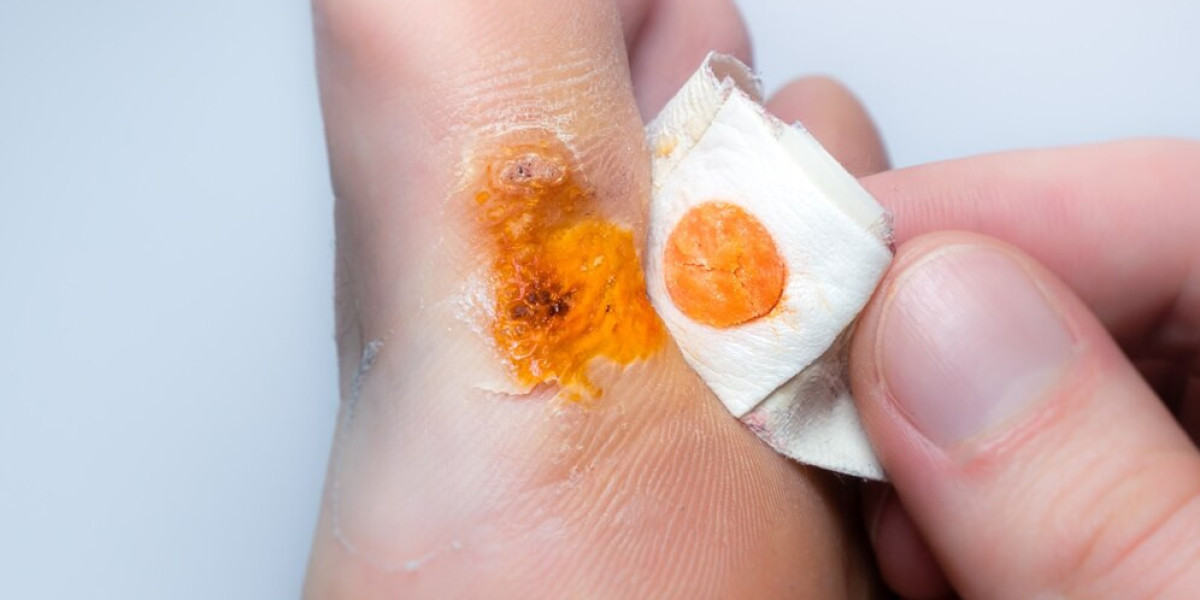Corns and warts may seem like small skin issues, but for those who suffer from them regularly, they can cause significant discomfort and frustration. Whether you’ve dealt with recurrent corns due to foot pressure or warts caused by the human papillomavirus (HPV), finding a long-term solution is key to preventing their return.
In this blog, we’ll discuss the most effective corns and warts treatment in San Antonio, how to prevent recurrence, and why professional intervention often leads to better results.
Why Long-Term Solutions Matter
Corns and warts may seem like simple skin conditions, but if left untreated or improperly managed, they can become chronic problems. Corns can return if the source of friction isn’t addressed, and warts can spread or reoccur if the virus isn’t completely eliminated.
Recurrent Corns:
Corns are caused by pressure or friction, often due to poorly fitting shoes or abnormal foot mechanics. If these issues aren’t resolved, the corn will likely come back, causing ongoing pain and discomfort. Treating the corn without addressing its root cause can lead to a cycle of recurrence.
Recurrent Warts:
Warts are viral infections caused by certain strains of HPV. While some warts may eventually go away on their own, the virus can remain in your system and cause new warts to develop. Without proper treatment, warts can spread to other parts of your body or to other people.
By focusing on long-term solutions, you can break the cycle and avoid dealing with these persistent conditions.
Effective Long-Term Treatments for Corns
Treating corns is more than just removing the thickened skin. A long-term solution involves addressing the underlying causes of pressure and friction. Here are the most effective ways to prevent corns from returning:
1. Custom Orthotics
One of the most reliable ways to prevent recurrent corns is by wearing custom orthotics. These are specially designed shoe inserts that provide proper arch support and reduce pressure on the foot.
- Why They Work: Custom orthotics help distribute weight more evenly across your foot, reducing pressure on areas prone to developing corns.
- Long-Term Benefits: With continued use, orthotics can prevent the reformation of corns by addressing the root cause—improper foot mechanics.
2. Proper Footwear
Wearing properly fitting shoes is essential for preventing corns. Shoes that are too tight, too loose, or lack cushioning can lead to pressure points, which cause corns to form.
- What to Look For: Choose shoes with a wide toe box, good arch support, and soft insoles to reduce friction.
- When to Replace Shoes: Over time, even the best shoes can wear out and lose their support. It’s important to replace your shoes regularly, especially if you notice signs of wear or discomfort.
3. Routine Foot Care
Keeping your feet moisturized and using protective padding can help reduce the chances of corns forming. Dry, cracked skin is more prone to friction and pressure.
- Moisturizing: Applying lotion to your feet regularly can keep your skin soft and less likely to develop thickened areas.
- Padding: Corn pads or cushions can be applied to areas of the foot that experience the most pressure, providing relief and preventing corn formation.
4. Surgical Correction
In some cases, the underlying cause of recurrent corns is a structural issue, such as a bone deformity or toe misalignment. In these cases, surgery may be necessary to correct the problem.
- What It Involves: Surgery may involve removing or reshaping a bone to reduce pressure on the affected area.
- Long-Term Outcome: While surgery is often a last resort, it can provide permanent relief for those with severe or recurrent corns caused by foot deformities.
Effective Long-Term Treatments for Warts
Warts can be particularly stubborn due to their viral nature. Finding a long-term solution often involves boosting the body’s immune response and using medical treatments to eliminate the wart completely. Here are the most effective long-term strategies for treating warts:
1. Cryotherapy (Freezing)
Cryotherapy is one of the most common treatments for warts, particularly plantar warts on the feet. The process involves freezing the wart with liquid nitrogen, causing the infected tissue to die and fall off.
- Why It Works: Cryotherapy targets the infected tissue without damaging surrounding healthy skin.
- Long-Term Effectiveness: Multiple treatments may be needed, but cryotherapy is highly effective at eliminating warts and reducing the chance of recurrence.
2. Immunotherapy
Because warts are caused by a viral infection, boosting your immune system’s response can help fight off the virus. Immunotherapy involves applying medication to the wart to stimulate the body’s immune response.
- How It Works: Medications like imiquimod are applied topically to boost the immune system and encourage it to attack the virus.
- Long-Term Benefits: Immunotherapy is especially useful for people with weakened immune systems or those who experience recurrent warts. It helps the body fight off the HPV virus more effectively.
3. Laser Therapy
Laser therapy uses a focused beam of light to destroy the blood vessels that feed the wart, cutting off its blood supply and causing it to die.
- Why It’s Effective: Laser therapy is precise and effective, especially for warts that are resistant to other treatments.
- Long-Term Results: Laser treatment can lead to permanent removal of warts, but multiple sessions may be required for complete eradication.
4. Surgical Removal
For persistent warts that don’t respond to other treatments, surgical removal may be necessary. This procedure involves cutting out the wart under local anesthesia.
- When It’s Used: Surgery is typically reserved for large or painful warts that haven’t responded to other treatments.
- Long-Term Considerations: Surgical removal is highly effective, but there is a small risk of scarring. However, it offers a long-term solution for warts that have been resistant to other methods.
5. HPV Vaccination
For certain types of warts, particularly genital warts, getting vaccinated against HPV can help prevent future outbreaks. While the vaccine won’t treat existing warts, it can protect against future infections.
- Who Should Consider It: The HPV vaccine is recommended for both men and women to prevent the types of HPV that cause genital warts and certain cancers.
- Long-Term Benefits: Vaccination provides long-term protection against the most common strains of HPV, reducing the risk of developing new warts.
Preventing Future Corns and Warts
Prevention is key to avoiding the discomfort and hassle of treating corns and warts. By taking proactive steps, you can significantly reduce your risk of developing these skin conditions in the first place.
1. Maintain Good Hygiene
Warts are caused by a virus, so maintaining good hygiene is crucial in preventing them from spreading or developing in the first place. This is especially important in communal areas like gyms, swimming pools, and locker rooms.
- Wear Foot Protection: Always wear flip-flops or sandals in public showers and around pools to avoid direct contact with surfaces that could harbor HPV.
- Wash Hands Regularly: Washing your hands frequently can prevent the spread of the virus that causes warts.
2. Avoid Excessive Pressure on Feet
To prevent corns, it’s essential to reduce the amount of friction and pressure on your feet. This can be achieved by wearing well-fitting shoes and using protective padding in areas prone to friction.
- Rotate Footwear: Rotating your shoes and wearing different types of footwear can help reduce pressure on specific areas of the feet.
- Trim Toenails Properly: Keeping your toenails trimmed can prevent them from pushing against your shoes and causing pressure that leads to corns.
3. Strengthen Your Immune System
A strong immune system is your best defense against warts. Eating a balanced diet, getting enough sleep, and staying physically active can help keep your immune system functioning optimally.
- Healthy Lifestyle Choices: Regular exercise, a nutritious diet, and stress management can all help bolster your immune system and reduce your risk of viral infections like HPV.
FAQs About Corns and Warts Treatment in San Antonio
Q1: Can corns and warts come back after treatment?
Yes, corns can return if the underlying cause of pressure or friction isn’t addressed. Warts may reoccur if the HPV virus remains in your system. Long-term prevention strategies can reduce the risk of recurrence.
Q2: Is cryotherapy painful?
Cryotherapy can cause some discomfort, such as a stinging or burning sensation, but it’s generally well-tolerated. The discomfort is temporary and usually subsides within a few minutes.
Q3: How long does it take to recover from laser therapy for warts?
Recovery time from laser therapy is relatively short. The treated area may be sore for a few days, but most people can return to normal activities immediately after the procedure.
Q4: Can custom orthotics really prevent corns?
Yes, custom orthotics can provide proper foot support and reduce pressure on areas prone to corns. By distributing weight more evenly across your foot, orthotics can prevent the formation of new corns.
Q5: Are warts dangerous?
While warts are generally harmless, they can cause discomfort and spread to other parts of the body or other people. In rare cases, certain types of HPV can lead to more serious conditions, such as cancer.








